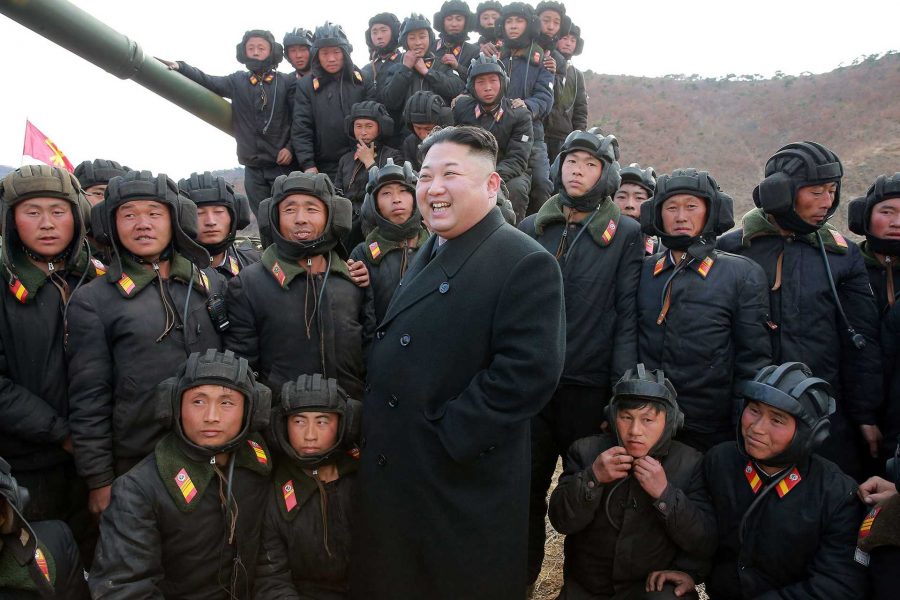Governing a nation requires a leader to put aside her or his ego, something both Trump and Kim Jong-un seem unable to do.
By Ella Lee
Imagine yourself back in the fifth grade. Two of the meanest kids in class are fighting, again, over who is the best goalie — a coveted position to play in soccer during recess. The two bullies begin calling each other names, and it becomes clear that the situation is going to end in a fight.
All the other kids, aside from a few who are egging on the combatants, are begging the two troublemakers to cut it out before the teacher notices. However, with all the attention the situation has gained, both the kids continue to provoke each other and refuse to find a compromise, not wanting to be deemed the loser. Finally, one of them throws a punch. The teacher comes to break it up and punishes the whole class for their actions, declaring that no recess will be had the next day.
Today, this all too familiar “playground standoff” is happening in international politics. While tensions have long been present between North Korea and America, the past few weeks have shown a rapid escalation in strain between the two countries —
primarily because of the
childish competition between both countries’ leaders in hopes of gaining superiority. The clash between President Trump and Kim Jong-un increasingly has less to do with actual political issues and more to do with a common fear of bruising their egos.
The CIA has stated that Kim has “a massive ego and reacts harshly and sometimes lethally to insults and perceived slights.” Trump portrays similar behaviors, consistently boasting about his supposed pre-eminence. At an Iowa rally on Jan. 23, 2016, Trump said, “I could stand in the middle of Fifth Avenue and shoot somebody, and I wouldn’t lose any voters, OK? It’s like incredible.”
RELATED: Former National Security adviser talks North Korean diplomacy
These character flaws are being transferred into governance. Each leader has allowed his ego to get in the way of diplomatic compromise. In totalitarian North Korea, it is not unexpected that a leader would disregard the opinions of the public and other globally prominent commanders. For the leader of a democracy, however, it is unacceptable. A new CNN poll recently conducted by Social Science Research Solutions found that of the participants surveyed, 50 percent disapproved of the way Trump is handling the situation with North Korea, 37 percent approved, and 13 percent had no opinion. Of the surveyed participants, 30 percent were Democrats, 25 percent were Republicans, and 42 percent were independents or members of another party. With such a high rate of disapproval across party lines, the president should approach the situation with North Korea and Kim in a different manner in order to fullfill his duty as a public servant.
But to Trump, this duty doesn’t matter. The sparring match between America and North Korea has become a crusade for dominance, and each leader is vying for bragging rights to be able to declare without question that his country is better than the other. In June 2015, Trump tweeted, “When somebody challenges you unfairly, fight back — be brutal, be tough — don’t take it. It is always important to WIN!” To Trump, limiting his provocative rhetoric and backing down from his original claim to fight with “fire and fury” would be to forfeit his title as a winner.
“As our president, [Trump] should have an open mind in trying to meet the majority of the nation’s people’s interests in a reasonable
manner,” first-year student Nichole Shaw said.
Considering the position of power that Trump holds, he should prioritize his people before his self-pride. In the bully scenario, it’s key to
recognize the ultimate outcome: Everyone, from international leaders to students on our campus, can be negatively affected by poor decisions made by a few people. It is absolutely crucial that in the coming weeks and months, as the tensions between America and North Korea either rise or fall, the leaders of the world put their own agendas aside and work for the good of all.



